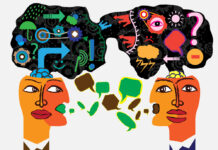Depression remains the most prevalent of psychiatric conditions, yet it paradoxically continues to increase despite the proliferation of treatments. This phenomenon, termed the treatment-prevalence paradox (TPP), challenges assumptions about the efficacy and accessibility of current approaches to mental health care.
A new study by Iony D. Ezawa and colleagues, published in the Annual Review of Clinical Psychology, investigates the TPP and suggests that the paradox is rooted in three key issues: misunderstandings about the nature of depression, overstated effectiveness of existing treatments, and poor accessibility to care. The authors argue that addressing these factors requires expanding access to interventions that are both effective and practical for diverse populations, including those delivered by lay therapists and through digital technologies.
The authors write,
“We believe there are various explanations for this treatment–prevalence paradox. First, an evolutionary perspective of depression suggests that it is likely neither a disease nor a disorder but rather an evolved adaptation that facilitated survival and reproduction in our ancestral past. If depression is indeed an evolved adaptation, interventions that promote the function that depression evolved to fulfill should be prioritized over those that solely alleviate distress. These interventions should be accessible to anyone experiencing depressive-like symptoms who wants to get help and not only to those who are diagnosed with a disorder. Even though such interventions exist, the apparent efficacy of most interventions (both pharmacological and psychosocial) has been inflated by publication and other biases; these interventions are rarely implemented as well in the real world.”
















One-word answer: STUPIDITY
Report comment
It’s not a “paradox” unless there is reason to expect the “treatments” to be effective. In this case, it’s simply evidence of either treatment failure, or a hidden agenda to create more customers!
Report comment
I think the word “paradox” was used to make it sound like they aren’t being stupid, or maybe used to convince themselves they are being intelligent, which they clearly are not, imho…now, is that the paradox?
Report comment
They seem to mean that they expect people to get better but they get worse instead. A paradox only if there is a rational expectation that the initial “treatment” should work. That seems to be a large part of the “trick” of selling psych drugs. Make an open claim that they “work” and then call failures “resistance” or “paradoxical” instead of just admitting they were wrong!
Report comment
What you say makes me change my initial answer from stupidity to crookedness.
Report comment
That is exactly what it is Steve, “treatment” that causes people to remain depressed.
SSRI’s lower Folic Acid (and Vitamin D). So do all the other drugs associated with suicide like antipsychotics, anticonvulsants, PPI dugs (stomach meds). malaria meds, and statins.
If you don’t have enough Folic Acid, you can’t make SamE and neurotransmitters.
They hid it by saying Folic Acid increases the effect from SSRIs instead of saying SSRIs lower Folic Acid.
Report comment
How can the author state there have been “advances in treatment options” when it is clear that the “treatment options” are not resolving the problem? Wouldn’t an “advance” in treatment mean a DECREASE in the number of sufferers??? I think the authors miss the point. As Robert’s research demonstrates, the ADs tend to be COUNTERPRODUCTIVE, a form of ANTI-TREATMENT for many people. When the best estimates of “success” show rates of 30%, and even then with very small improvements that may not even be clinically significant, it’s hardly appropriate to call “treatment failures” a “paradox.” They are evidence that the treatment doesn’t work!
Report comment
Or that the “treatments ” cause more harm than good. They may help some, be pointless for others and cause various degrees of harm to others. Their is evidence for all possibilities. I am reminded of an experiment David Healy did where 20 people who had never been depressed took an antidepressant, one felt weller than well, two had to be put on suicide watch, the rest were a bit meh. Overall both the raw data from clinical trials and the naturlistic long term outcome studies inducate they are either irrelevant or harmful.
Report comment
Yeah, the language in that paper is wild.
The first sentence is:
“Depression is an eminently treatable disorder that responds to psychotherapy or medications”
It then spends several pages argueing that its own first sentence is wrong.
Why not just write:
“Depression is often thought of as an eminently treatable disorder that responds to psychotherapy or medications”
Report comment
How can there be any treatments for metaphorical illnesses, which are precisely what so-called mental disorders are (apart from conditions such as Alzheimer’s that stem from verifiable physical pathology)? Attaching arbitrarily concocted medical-sounding labels (e.g. dysphoria, dysthymia) to states of emotional distress is an inappropriate, inaccurate, misleading use of language.
Report comment
Agreed!
Report comment
Studies have shown that low Vitamin D can cause the symptoms from the different mental conditions. The lower the level, the more severe the symptoms.
So in that case, if you supplement Vit D to keep a level of 50, you might be able to treat some of the symptoms of distress, right?
Report comment
After seeing a Rexulti ad on TV, a drug used to treat “major depressive disorder” alongside antidepressants when first-line medications aren’t enough, a friend asks why antidepressants aren’t sufficient for some people. To me, it seems that no matter how much a person is medicated to alleviate symptoms, the drugs and therapy can never, and will never, change the depressing world around them. Those who are more aware or sensitive to its stench may need stronger drugs or higher doses to numb themselves, until they can become as inured to it as everyone else seems to be. Maybe some people are simply harder to drug into submission than others.
Report comment